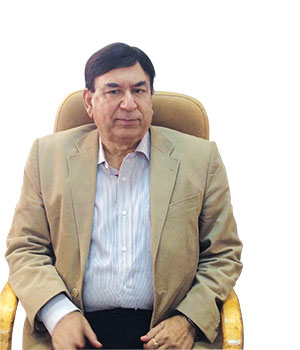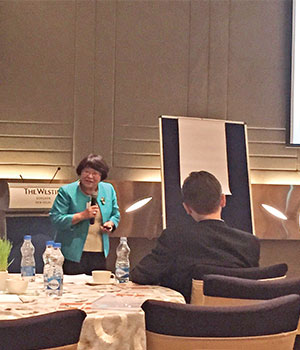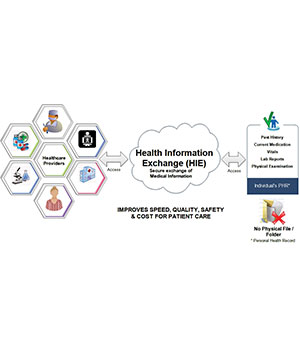
Health Insurance is becoming a cash cow. The companies are rolling over with cash. A customer is pampered to the fault
 Given the poor health infrastructure and complete absence of doctors and hospitals in the faraway places, health insurance in India is a fast growing segment of Indias economy. 3.9 percent of Indias gross domestic product was spent in the health sector three years ago. According to the World Health Organisation (WHO), this is among the lowest of the BRICS (Brazil, Russia, India, China, South Africa) economies. Policies are available for both an individual and a family cover.
Given the poor health infrastructure and complete absence of doctors and hospitals in the faraway places, health insurance in India is a fast growing segment of Indias economy. 3.9 percent of Indias gross domestic product was spent in the health sector three years ago. According to the World Health Organisation (WHO), this is among the lowest of the BRICS (Brazil, Russia, India, China, South Africa) economies. Policies are available for both an individual and a family cover.

The expenses incurred on hospitalization are covered or taken care of by health insurance policies in India. The choices and preferences have multiplied to suit the needs of a customer. A variety of products are available offering a range of health covers, depending on the need and choice of the insured.
The key aspects of health insurance and payment options are direct payment or cashless facility. Under this facility, a patient does not need to pay the hospital in the same way as the insurer pays directly to the hospital
Launched in 1986, the health insurance industry woke up to the needs a little too late. Trying to catch up with lost opportunities, however, it has grown significantly mainly due to liberalization of economy and general awareness. By 2010, more than 25 percent of Indias population had access to some form of health insurance. There are standalone health insurers along with government sponsored health insurance providers. Until recently, to improve awareness and reduce procrastination for buying health insurance, the General Insurance Corporation of India and the Insurance Regulatory and Development Authority had launched an awareness campaign for all segments of the population.

The first health policies in India were Mediclaim policies. In 2000, the Government of India threw the insurance companies open and allowed private players into the insurance sector. The advent of private insurers in India saw the introduction of many innovative products like family floater plans, top-up plans, critical illness plans, hospital cash and top up policies among others.
Health insurance in India is unique, paying for only inpatient hospitalization and treatment at the hospitals. It is a major departure from many countries which offer comprehensive health cover including hospitalization, medicine, subsequent consultations with the doctor. Outpatient services were not payable under health policies in India. The government control led to many structural problems. Broadly we can divide the health insurance plans in India into two categories:
Hospitalization
Hospitalization plans are indemnity plans with a different name that pay cost of hospitalization and medical costs of the insured subject to the sum insured, an amount an insured can avail of at the most. These policies do not normally pay any cash benefit. However, there are specific policies to offer a number of additional benefits like maternity and newborn cover, day care procedures for specific procedures, pre-and post-hospitalization care, domiciliary benefits where patients, restricted by ailments, cannot be moved to a hospital. The offers go a long way to help the insured out of the crisis. The sum insured can be applied on a per member basis in case of individual health policies or on a floater basis in case of family floater policies. The sum insured can also be utilized by any of the members insured under the plan in case of floater policies.
There is still another kind of hospitalization policy called a top-up policy. The several top up policies have a high deductible typically set a level of existing cover. This policy is targeted at people who have some amount of insurance from their employer. If the cover provided by an employer is not good enough, people are free to supplement their cover with the top-up policy, depending upon their requirements.
Hospital daily cash benefit plans:
The daily-cash-benefits are a well defined benefit policy that pays or can pay a defined sum of money for hospitalization every day. Premium for these benefits are a little higher than normal. Reflecting the policy of an insurance company, the payments are for a defined number of days in the policy year and may be subject to deduction of few days. Although laid out in detail, the insured and the company often lock themselves into an argument.
Critical illness plans:
There are several policies to take good care of an approximate sum if an insured is diagnosed with one of the ailments specified in the policy. Some of the policies require a survival period for the payout to take effect. A very long road, indeed. The key aspects of health insurance and payment options are direct payment or cashless facility. Under this facility, a patient does not need to pay the hospital in the same way as the insurer pays directly to the hospital. Under the cashless scheme, the policyholder and all those who are mentioned in the policy can undertake treatment from those hospitals approved by the insurer. As suggested by the name, the benefit can be availed of without paying a single penny unless the expenses are incurred on the subjects other than mentioned in the policy. Reimbursement at the end of the hospital stay means that the patient, after staying for the duration of the treatment, can claim a reimbursement from the insurer for the treatment covered under the policy undertaken.
Cost and duration are two critical components of the health policy, taking care of an insured. For example, the insurance companies offer health insurance from a sum insured of Rs. 5000/- for micro-insurance policies to a higher sum insured of Rs 50 lacs and above. The commonest insurance policies for health insurance are usually available from Rs 1 lac to Rs 5 lacs. However, the health insurance policies offered by non-life insurance companies usually last for a period of one year. The life insurance companies also offer policies for a period of several years. Actually, they have a deep pocket trying to play Santa to every playful child.
Under the Income Tax Act, under Section 80D, the insured person who takes out the policy can claim for tax deductions.
Global market:
Health insurance is a type of insurance coverage that covers the cost of an insured individuals medical and surgical expenses, unless cost of medicines is separated from hospitalization. Depending on the type of health insurance coverage, either the insured pays costs out-of-pocket and is then completely reimbursed, or the insurer makes payments directly to the provider.
In some countries, such as the United Kingdom or Canada, health care coverage is provided by the state and is rightly seen as every citizens right – it is treated at par with public education, the police, firefighters, street lighting, and public road networks, as a part of a public service for the nation. It may be added here that the utive in foreign countries is not as inept as in India where actual health coverage is severely crippled.
In countries without universal health care coverage, such as the USA, health insurance is commonly included in employer benefit packages and seen as an employment perk. However, that has equally impacted the benefits in other sectors.
In other countries, such as the USA, health insurance coverage is seen somewhat differently – with the exception of some groups, such as elderly and/or disabled people, veterans and some others, it is an individuals responsibility to be insured. More recently, the Obama Administration has introduced laws making it mandatory for everybody to have health insurance, and there are penalties for those who fail to have a policy of some kind. Though the policy has run into huge opposition. The deadlock snowballed into shutdown. The economy took a body blow. When medical care is required, ideally the patient should be able to concentrate on getting better, rather than wondering whether he/she has got the resources to pay for all the bills. This view is finding acceptance in nearly all the developed nations.
Future Outlook:
Health insurance in India has taken roots deep into the rural hinterlands. The populace has no option, left without any doctor or hospital much less any pr imary health centre, a solemn objective laid long ago by our forefathers in the constituent assembly but conveniently forgotten in the corridors of power. Vulnerable to the pressure and pull, the gullible people are easy prey to monstrous marketing blitzkrieg unleashed by the fat companies. The markets in urban areas and metros are saturated. The people are still learning about the benefits and what it actually means to have a health insurance. Insurance companies are seeking to expand their customer base. They are always introducing new products and variants into the market almost every day. In such an environment it is easy for a customer to pick and choose from among a basketful options. Plenty is often the problem.
Whether you are looking for health insurance in Gurgaon, health insurance in Delhi or health insurance in Noida, investing in a good health insurance product is a great idea fast catching up with the rural populace. The rest of India is not different.
Therefore, when you buy a health insurance policy you can rest assured of receiving the care you need, when you need it. Invest a part of your savings for your own secured future and feel free to eat wrong, live happy.
Indias health insurance market has witnessed emerging trends in recent past. It has several new players to contribute. With their innovative healthcare policies, insurance providers are making way for improved healthcare conditions for people. They have made easy for all to obtain security against health risks.
The choice of a health cover is again a key to calculating the total expenses incurred on a household. This decision must be taken prudently. Some companies are always at prowl. They intend more to mint money than to mend the morbidity. While selecting the medical care policy, it is required to pay attention to all the included features. The hidden costs at the bottom are often so cleverly inserted with small sized letters as to escape even the most scrutinizing eyes. Although all medical insurance plans provide coverage against health uncertainties but they all have variations. Policies differ on the grounds of sum insured options, list of benefits, number and kind of critical illnesses if in case the benefit is included, copayment, maximum entry age, exclusions, deductibles, renewal terms and claim process. The policies need a careful deliberation. It is thus imperative to keep a note of all the above mentioned features.
In addition, all medical insurance plans adhere to the specific terms and conditions. They are not the last word in any case, always open to a prospective customer to extract many benefits whether mentioned or assumed. They differ from policy to policy; hence they must be cross checked before taking any final decision. People are becoming health conscious these days. They have started following a healthy diet and are maintaining a healthy routine. But it is to bring to your notice that it is not enough for health security.
But before investing in medical insurance, it is extremely important to develop proper understanding of the policy. Providing genuine information about all the products and in simple policy wording is an ideal and professed objective but often followed more in breach than in conformity. Same holds true for keeping the process transparent. One can avail cashless treatment with our products in more than 4000 network hospitals in over 800 cities.
Failure to bear the expensive treatment cost forces people to end up compromising with the quality of treatment. It can have an undesirable and avoidable bearing on the health of the person in the longer run. Opposed to this, an insured person has somebody to turn to. He/ she can leave the financial worries for the insurance company to deal.
It not only takes care of your financial concerns in times of a health emergency, but also gives you an easy customized access to routine and preventative healthcare elements which might have been out of your bounds earlier. In addition to that, in times of a medical crisis, your insurance policy ensures what goes comes back. The cash outflow is an inflow with a different name.
Be a part of Elets Collaborative Initiatives. Join Us for Upcoming Events and explore business opportunities. Like us on Facebook , connect with us on LinkedIn and follow us on Twitter , Instagram.











